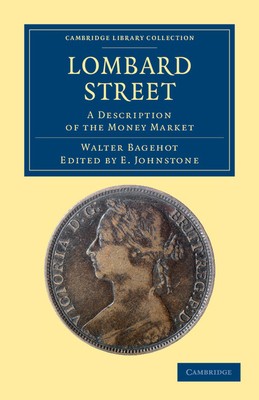
- We will send in 10–14 business days.
- Author: Walter Bagehot
- Publisher: Cambridge University Press
- ISBN-10: 1108035817
- ISBN-13: 9781108035811
- Format: 14 x 21.6 x 2.1 cm, minkšti viršeliai
- Language: English
- SAVE -10% with code: EXTRA
Reviews
Description
Walter Bagehot (1826-77), the influential political and economic essayist, wrote a number of books that became standards in their respective fields. He attended University College, London, where he studied mathematics and gained a master's degree in intellectual and moral philosophy. He was called to the bar, but instead chose a career in his father's banking business. He wrote widely on literature, economics and politics, co-founding the National Review in 1855. He became editor-in-chief of The Economist in 1860 and remained in that post until his death. This work, published originally in 1873 and described by J. M. Keynes as 'an undying classic', is a masterpiece of economics. It explains the world of finance and banking, concentrating on crisis management, and its ideas are as relevant today as ever, especially in the face of the global financial crisis that emerged in 2007.
EXTRA 10 % discount with code: EXTRA
The promotion ends in 22d.11:22:36
The discount code is valid when purchasing from 10 €. Discounts do not stack.
- Author: Walter Bagehot
- Publisher: Cambridge University Press
- ISBN-10: 1108035817
- ISBN-13: 9781108035811
- Format: 14 x 21.6 x 2.1 cm, minkšti viršeliai
- Language: English English
Walter Bagehot (1826-77), the influential political and economic essayist, wrote a number of books that became standards in their respective fields. He attended University College, London, where he studied mathematics and gained a master's degree in intellectual and moral philosophy. He was called to the bar, but instead chose a career in his father's banking business. He wrote widely on literature, economics and politics, co-founding the National Review in 1855. He became editor-in-chief of The Economist in 1860 and remained in that post until his death. This work, published originally in 1873 and described by J. M. Keynes as 'an undying classic', is a masterpiece of economics. It explains the world of finance and banking, concentrating on crisis management, and its ideas are as relevant today as ever, especially in the face of the global financial crisis that emerged in 2007.


Reviews